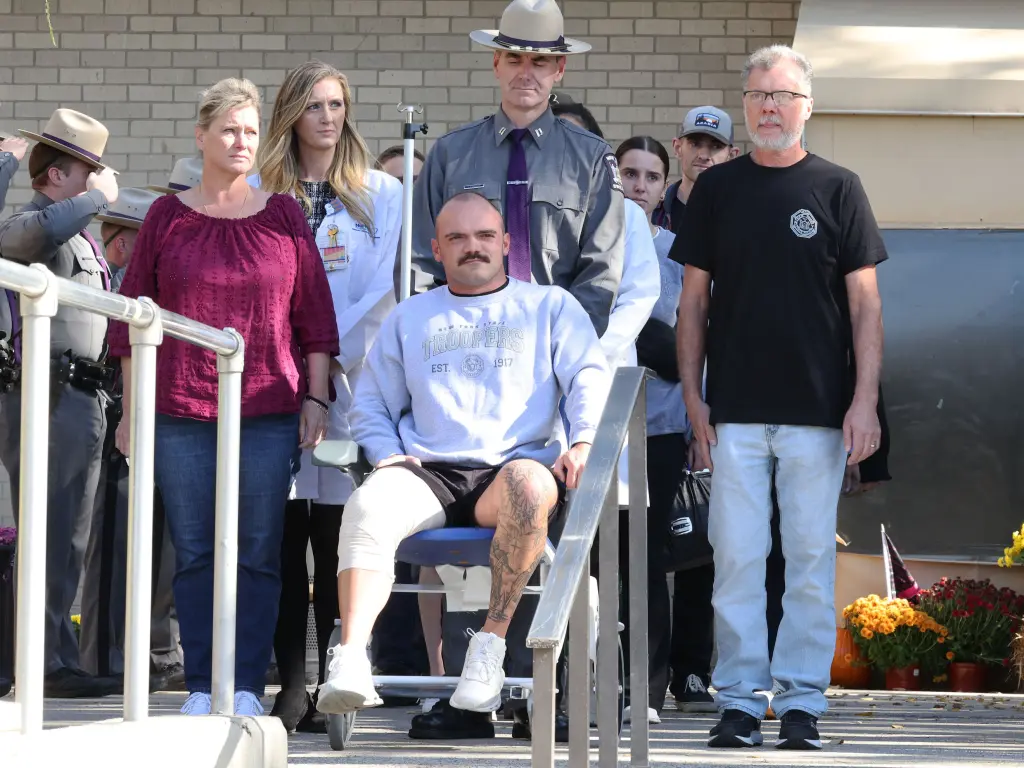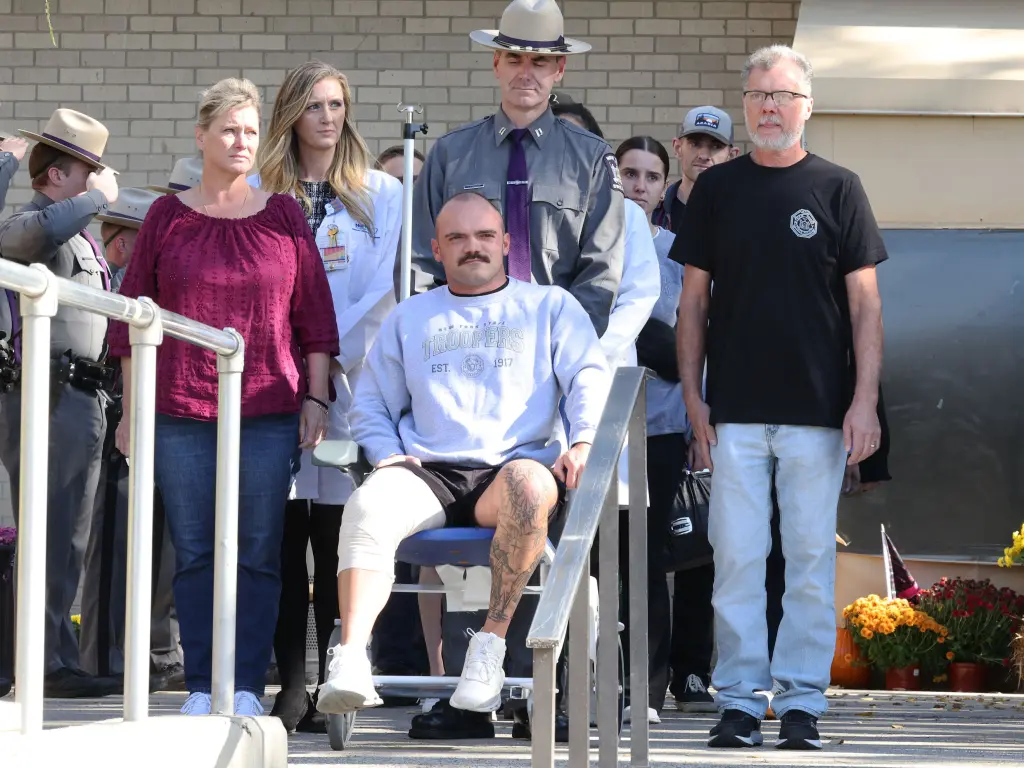Former New York State Trooper Staged a Shooting to Impress His Nurse Ex — and Even Demanded to Be Taken to Her Hospital, Authorities Say
It sounds like something straight out of a movie — but it’s real, and it’s tragic in its own bizarre way. A former New York State trooper, once trusted with upholding the law, has become the center of a scandal that has shocked both his colleagues and the public. Thomas Mascia, a man once celebrated for his service, now stands accused of orchestrating an elaborate hoax to win back the woman who no longer wanted him in her life.

According to prosecutors in Nassau County, Mascia’s downfall began not with a crime, but with heartbreak. After his ex-girlfriend, a nurse, ended their relationship, investigators say he became obsessed with the idea of winning her back. And rather than moving on, he allegedly decided to stage a shooting — one that would cast him as a hero, a victim, and most importantly, someone she would have to care for again.
The plan was as twisted as it was desperate. On October 30, 2024, Mascia called in a report claiming that he had been shot in the leg during a traffic stop on the Southern State Parkway. He described the supposed shooter as a Black man driving a black Dodge Charger — details that set off a massive police response across the region. Fellow troopers rushed to the scene. Roads were shut down. Entire neighborhoods were on edge. And all the while, Mascia’s wound, investigators later discovered, had been self-inflicted.

Authorities say Mascia wasn’t interested in starting chaos or making a political statement. He simply wanted to get attention — and more specifically, the attention of his former girlfriend. According to sources close to the investigation, he even went so far as to request that first responders take him to the hospital where she worked, hoping that she would see him injured and feel sympathy. It was a plan built entirely on emotion — and it unraveled almost immediately.
When forensic evidence didn’t match his story, investigators began to suspect something was wrong. The bullet’s trajectory didn’t make sense. There was no physical evidence of a struggle or an assailant at the scene. Surveillance cameras along the route showed nothing resembling the vehicle he had described. Eventually, confronted with mounting inconsistencies, Mascia’s story collapsed. He was arrested and charged with multiple offenses, including filing false reports and obstruction of governmental administration.

What followed was a wave of disbelief from both his colleagues and the community. For many, it was hard to understand how someone trained to serve and protect could spiral into something so reckless. In an emotional statement, law enforcement officials expressed frustration at how Mascia’s actions wasted resources and eroded public trust. Troopers had spent hours searching for a nonexistent gunman, while his lie put innocent people at risk of suspicion.
Mascia’s actions also had a personal cost. His career is over, his reputation destroyed, and his desperate stunt left behind a trail of embarrassment and broken trust. For the woman at the center of it all, the ordeal was reportedly painful and unwanted — a public spectacle tied to a private heartbreak.
At his court appearance, Mascia looked somber and distant, a far cry from the confident trooper in uniform that many once knew. What drove him to such extremes remains a question only he can answer, but psychologists often point out that acts like this stem from obsession, emotional instability, and a refusal to accept rejection.
Now, the case serves as a sobering reminder that even those trained to act rationally can be consumed by emotion. In Mascia’s attempt to play the hero, he became the villain of his own story. And in trying to win someone’s love through deception, he lost everything that once gave his life meaning — his career, his credibility, and his freedom.
Sometimes, the truth is stranger than fiction. And in this case, it’s also far sadder.



